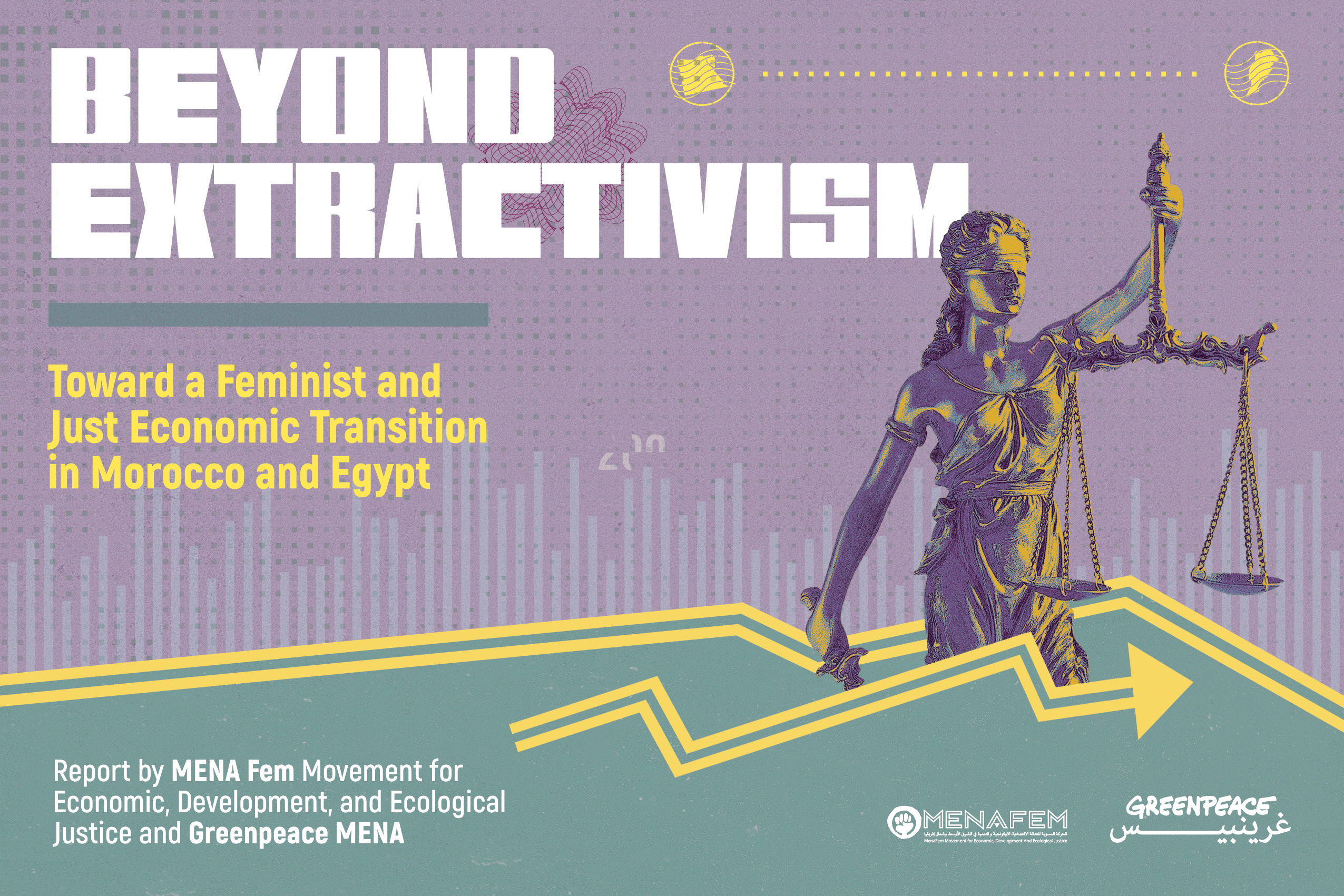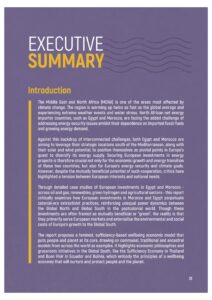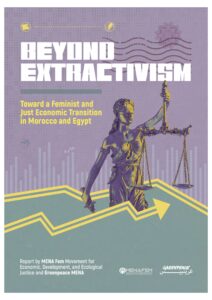New MENAFem Report | Beyond Extractivism: Toward a Feminist and Just Economic Transition in Morocco and Egypt
New MENAFem report warns: European investments in energy and agriculture may worsen environmental and social harm in the Middle East and North Africa
The report, titled “Beyond Extractivism: Towards a Feminist and Just Economic Transition in Morocco and Egypt”, challenges the widely held belief that European investments create mutual benefits. Instead, it reveals how these investments in oil, gas, renewable energy, green hydrogen, and agriculture in Morocco and Egypt often perpetuate unfair resource exploitation, with wealth and benefits flowing to the Global North—while contributing little to local economies. Rather than fostering sustainable development, these investments drain natural resources and exacerbate environmental degradation in the host countries.
The report shows that the Middle East and North Africa (MENA) region continues to rely on economic systems that deplete resources, increase debt, and exacerbate the climate crisis. Meanwhile, temperatures in the region are rising at twice the global average, leading to extreme climate events and water scarcity. Energy-importing countries, such as Egypt and Morocco, face an additional challenge: securing their energy supply while depending on imported fossil fuels and grappling with growing energy demand.
Key findings from the report:
- Oil and gas projects are degrading ecosystems and depleting essential resources like water and arable land, disrupting biodiversity and long-term resource stability.
- The report raises concerns about Europe’s push for green energy projects in North Africa, like green hydrogen, arguing that these projects are more about securing Europe’s energy needs than genuinely supporting sustainable development and a just transition in the Global South.
- Prioritising exports over local benefits fosters dependency and entrenches socio-economic disparities.
- Extractivist practices are deepening gender inequalities by relegating women to low-wage, insecure roles and increasing unpaid care burdens.
- European agribusiness investments in Morocco and Egypt focus on export-oriented cash crops like tomatoes and citrus, which demand substantial water resources and intensify water scarcity in an already dry region.
- Alternatives exist. The report emphasises the need to move away from an economic model of endless growth and embrace a feminist sufficiency-based economic model that prioritises wellbeing and sustainability. It highlights economic philosophies, grassroots initiatives, and community-centric renewable projects in the Global South, which embody the principles of a wellbeing economy that will nurture and protect people and the planet.
Policy recommendations in the report for a wellbeing economy also include enhancing transparency and accountability in investments, aligning economic models with local values, history and tradition, and helping local communities build on their resilience and capacity.
To access the executive summary:
To read the full report:




